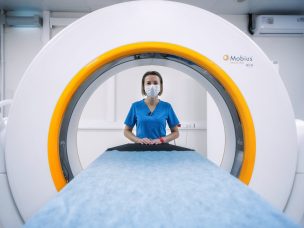Most accredited cancer programs in the United States reported a decline in cancer screening during the pandemic, most notably in colorectal cancer, according to a study published in Cancer.
Rachel H. Joung, M.D., from the Northwestern University Feinberg School of Medicine in Chicago, and colleagues conducted a prospective, national quality improvement study involving 748 accredited cancer programs in the United States from April through June 2021. The relative percent change in monthly screening test volumes (MTVs) was calculated using local pre-pandemic and pandemic MTVs to describe the monthly screening gap.
The researchers found that most facilities reported deficits in monthly screening: 80.6, 69.0, 55.3, and 44.6 percent for colorectal cancer, cervical cancer, breast cancer, and lung cancer, respectively. In addition, there were variations observed in the median relative percent change in MTV: −17.7, −6.8, −1.6, and 1.2 percent for colorectal cancer, cervical cancer, breast cancer, and lung cancer, respectively. No geographic differences were observed. For colorectal cancer screening, significant differences in the percentage change in MTV were seen between institution types.
“Although our preliminary data suggest variability in screening deficits across cancer sites, most hospitals in this study still have deficits in their MTV, most notably with colorectal cancer,” the authors write. “It is our hope that these findings and online resources will encourage others to identify and address screening deficits due to the COVID-19 pandemic and prevent unnecessary cancer-related deaths.”
Abstract/Full Text (subscription or payment may be required)










